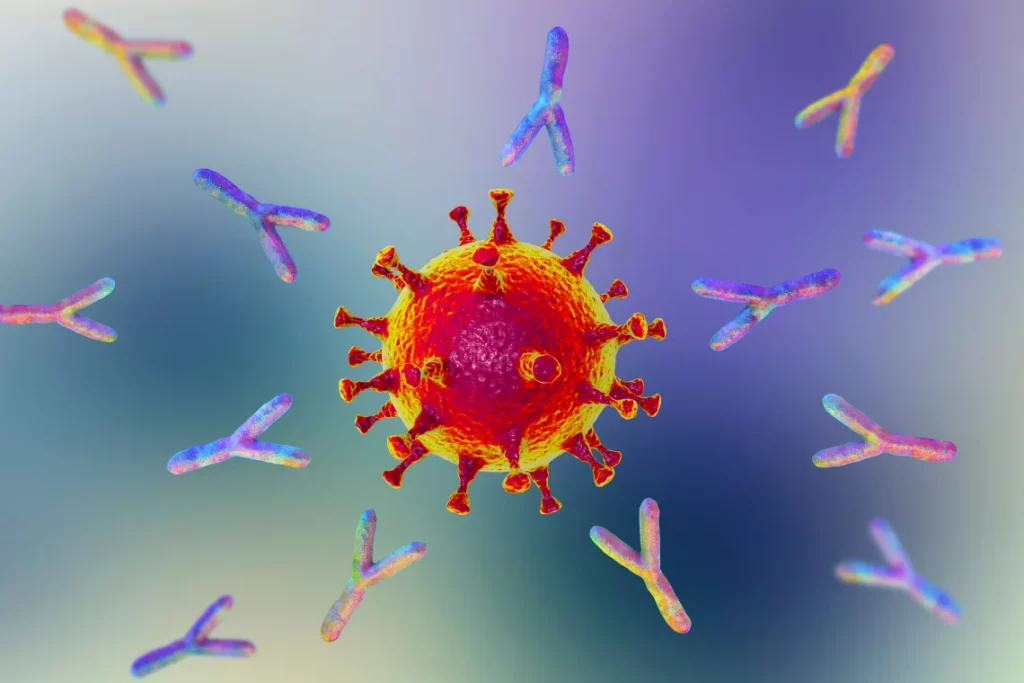
Could there be a link between antibody response to COVID-19 vaccination and the risk of subsequent infection?
Having three vaccines against COVID-19 offers greater protection and reduces the chance of individuals getting infected, according to research by the National Core Study for Longitudinal Health and Wellbeing.
The research, published today, confirms a link between antibody levels against the coronavirus which causes COVID-19 and protection against risk of later infection. In addition, individuals who were told to shield were shown to have lower antibody responses, suggesting that the shielding list correctly identified people who may be more vulnerable to COVID-19.
The team analysed blood samples from 9,361 participants from two population cohorts in the UK: 4,739 from TwinsUK and 4,622 from the Avon Longitudinal Study of Parents and Children (ALSPAC, also known as Children of the 90s).
Results showed that participants who had the third COVID-19 vaccination had greater levels of antibodies present – more than 90% of participants from TwinsUK had antibody levels that were significantly greater than the average antibody level participants had after the second vaccine.
The team found that people who had lower levels of antibodies after the first vaccination were more likely to report that they had COVID-19 than people with higher antibody levels. Also, individuals on the “Shielded Patient List” and people who said their health was generally poor were more likely to have decreased levels of antibodies after having their vaccination. On the other hand, individuals who had been infected with COVID-19 before were more likely to have increased levels of antibodies following vaccination compared to individuals who had not been infected.
Having a third vaccination also appeared to reduce differences in antibody levels based on vaccine type. The researchers found that individuals who had the Oxford/AstraZeneca instead of the Pfizer BioNTech vaccine had decreased antibody levels after the first or second vaccinations. However, there was no difference seen in the level of antibodies in individuals who had taken the Oxford/AstraZeneca and Pfizer BioNTech vaccines (for previous two vaccines) after they had taken their third vaccination. This shows that the third vaccination helps to boost antibodies present in individuals.
One limitation of this study is that it is not as clear how effective these vaccine-induced antibodies could be against new variants that emerge.
First author Dr Nathan J. Cheetham, King’s College London, explained:
“Our findings support a policy of having a third COVID-19 vaccination to boost antibodies and protect against COVID-19. In addition, our results show that some people are indeed more vulnerable to infection than others, and that it is still important for indiviudals previously told to shield to be aware of their personal risk of infection despite all restrictions being lifted.”
